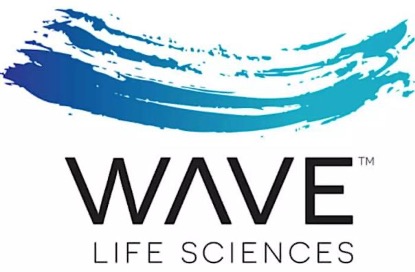Milepost! The first RNA editing therapy releases clinical data
October 22, 2024
Source: drugdu
 216
216
 On October 16th, Wave Life Sciences released positive mechanistic evidence data from the Ib/IIa RestorAATion-2 study of RNA editing therapy WVE-006 for the treatment of alpha-1 antitrypsin deficiency (AATD). This is the first RNA editing therapy to release clinical data.
On October 16th, Wave Life Sciences released positive mechanistic evidence data from the Ib/IIa RestorAATion-2 study of RNA editing therapy WVE-006 for the treatment of alpha-1 antitrypsin deficiency (AATD). This is the first RNA editing therapy to release clinical data.
AATD is a genetic disease caused by mutations in the SERPINA1 gene, which encodes alpha-1 antitrypsin (AAT), the most abundant protease inhibitor in human serum. Patients with homozygous protease inhibitor gene mutation type (Pi * ZZ) AATD are unable to naturally produce wild-type alpha-1 antitrypsin (M-AAT) protein.
Therefore, after receiving WVE-006 treatment, patients can produce M-AAT protein in their bodies, which confirms the successful editing of mutant Z-AAT mRNA. In addition, restoring 50% of M-AAT levels will be consistent with the heterozygous "MZ" genotype, resulting in a lower risk of AATD lung disease and liver disease.
The data released this time comes from the 200mg single dose cohort of RestorAATion-2 study, involving the first two Pi * ZZ AATD patients who have completed 57 days of treatment.
The results showed that in two Pi * ZZ AATD patients, a single subcutaneous injection of WVE-006 resulted in an average plasma total AAT level of approximately 11 µ M. The circulating wild-type M-AAT protein in the patient's plasma reached an average of 6.9 µ M on day 15, accounting for over 60% of the total AAT. Compared to baseline, the increase in neutrophil elastase inhibition is consistent with the production of functional M-AAT. The average total AAT protein increased from an unquantifiable level at baseline to 10.8 µ M on day 15, reaching the baseline level for regulatory approval of AAT enhancement therapy. An increase in total AAT and M-AAT protein relative to baseline was observed as early as the third day.
In addition, WVE-006 has good tolerability and good safety. All adverse events in the RestorAATion-2 study and the ongoing RestorAATion-1 study of healthy volunteers were mild to moderate, and no serious adverse events were reported. The RestorAATion-2 study is still ongoing, and Wave expects to release multi dose cohort data in 2025.
WVE-006 is a GalNAc coupled, subcutaneous delivered A-to-I RNA editing oligonucleotide (AIMer) developed by Wave Life Sciences based on its best in class oligonucleotide chemistry platform, aimed at addressing lung and liver diseases associated with AATD. GSK holds the exclusive global license for WVE-006. After the completion of the RestorAATion-2 study, development and commercialization work will be transferred to GSK.
In the United States, it is estimated that there are 200000 AATD patients with Pi * ZZ phenotype, and the treatment options for these patients are limited to weekly intravenous enhanced therapy for lung diseases (with global sales exceeding in 2023). There is currently no approved targeted therapy for treating AATD liver disease, and many AATD patients ultimately require liver transplantation.
Source: https://pharm.jgvogel.cn/c1452227.shtml
By editorRead more on
- 20-Valent Pneumococcal Vaccine Approved for Clinical Trials January 20, 2026
- ADC205 Tablets Received Approval for Drug Clinical Trial January 20, 2026
- Sifang Optoelectronics makes strategic investment in Changhe Biotechnology January 20, 2026
- Mingde Bio plans to acquire a 51% stake in Hunan Lanyi through capital increase and acquisition January 20, 2026
- accelerating the transition of CLL treatment into a “chemotherapy-free era”. January 20, 2026
your submission has already been received.
OK
Subscribe
Please enter a valid Email address!
Submit
The most relevant industry news & insight will be sent to you every two weeks.



